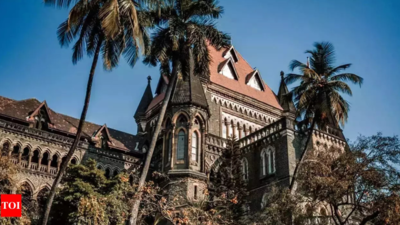Bombay High Court Upholds Mall Closure for Environmental Violations | Mumbai News – The Times of India

MUMBAI: The Bombay High Court dismissed a petition by Grauer and Weil (India) Limited that challenged a closure order issued to it by the MPCB. The court observed that the company “took law into its own hands” and constructed a mall without prior environmental clearance. The High Court division bench of Justices MS Sonak and Jitendra Jain on Wednesday directed the pollution control board to “immediately enforce its closure order.”
The High Court ruled that compliance with environmental legislation enacted in the public interest cannot be allowed to be defeated. The mall company sought to argue that the MPCB can exercise closure powers only in extreme urgencies. “Operating a mall that is put up without obtaining any environmental clearance is extremely serious,” the High Court said.
The High Court order made available on Thursday stated, “Petitioner constructed a mall and commenced operations in this mall without obtaining any environmental clearance before such mall was built and operations commenced.”
The Maharashtra Pollution Control Board (MPCB) issued closure directions to the company for its mall in Kandivli East on March 5 under the Water and Air pollution prevention statutes. The company, represented by advocate Ayush Agarwal, challenged the MPCB order on grounds of it being passed “without compliance with principles of natural justice.” The lawyer said “a case of extreme urgency” was made out for relief and stay of the MPCB order.
Agarwal submitted that though the company “may not have obtained environmental clearance for constructing the mall or may not have any consent to establish or operate the mall, still the impugned closure directions should not have been issued because the Petitioner applied under some amnesty scheme in 2016, and this application is still pending.”
The High Court found “no clarity” about the amnesty scheme’s applicability. The court said, “No amnesty scheme entitles establishment or operations without consent under the Air and Water pollution control legislation.”
Besides, the High Court stated, “there can be no unnatural expansion of the principles of natural justice entirely divorced from the realities of the situation. Once the Petitioner admitted to constructing a mall without obtaining any environmental clearance and further admitted to not obtaining consent to establish/operate such a mall, we fail to see how such a Petitioner can complain about any alleged violation of principles of natural justice.”
“Petitioner virtually considers itself above the law and has shown scant regard for environmental concerns,” said the order authored by Justice Sonak.
The alleged pendency of an application under some amnesty scheme does not operate as some deemed environmental clearance or entitle the lawbreaker to continue to break the law indefinitely, said the High Court order. It also observed that the contention that the Petitioner has applied under some amnesty scheme “certainly does not entitle the Petitioner to reap commercial profits at the cost of environmental concerns.”
The company argued that the Regional Directors can exercise powers only in extreme urgencies. Such an argument cannot be countenanced, the High Court ruled, and said it “almost suggests that the Regional Director had to wait for some environmental disaster and only then exercise the powers delegated to him or her.”
“This Court’s extraordinary, equitable, and discretionary jurisdiction is to promote justice and not perpetuate such gross illegalities,” the High Court noted.
The High Court observed, “If justice is the byproduct of even a flawed exercise of authority by MPCB [which, in this instance, it is not], the discretionary jurisdiction under Article 226 cannot be exercised to obliterate justice and establish environmental injustice.”
















